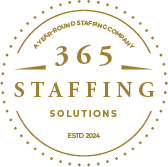The administrative assistant: the backbone of countless offices, the keeper of schedules, the master of organization. In today's fast-paced business world, a skilled administrative assistant (AA) can be the difference between a day spent productively tackling tasks and one filled with frantic scrambling. But with so many qualified candidates out there, how do you identify the perfect fit for your team? This comprehensive guide equips you with the knowledge and strategies to hire a superstar AA who will elevate your office efficiency and free you to focus on core business priorities.
Building Your Ideal Assistant Profile
Before embarking on your recruitment journey, take a step back to define the ideal skillset and qualities you seek in an AA. Consider these key areas:
- Skills and Experience: What level of experience is necessary? Do you require proficiency in specific software like project management tools or customer relationship management (CRM) platforms?
- Technical Expertise: Assess the technical skills required for the role. This could include typing speed, proficiency in office software (Microsoft Office Suite, Google Workspace), and familiarity with relevant industry-specific tools.
- Organizational Prowess: This is a non-negotiable. Your AA will be the master of your calendar, to-do lists, and overall office workflow.
- Communication Skills: The ability to communicate clearly and concisely, both written and verbally, is essential for interacting with colleagues, clients, and managing external communication.
- Interpersonal Skills: A positive attitude, strong work ethic, and the ability to work effectively with a diverse team are crucial for fostering a collaborative and productive work environment.
- Problem-Solving Skills: Your AA will inevitably encounter unexpected situations. The ability to think critically, identify solutions, and exercise initiative is invaluable.
Crafting a Compelling Job Description:
A well-written job description is your first impression on potential candidates. Here's how to craft a clear and engaging description:
- Company Introduction: Briefly introduce your company, its mission, and its culture. Highlight what makes your workplace unique.
- Job Summary: Clearly define the role of the AA, outlining key responsibilities and daily tasks.
- Skills and Qualifications: List the essential skills and experience you require. Be specific, but avoid excluding qualified candidates who might possess transferable skills.
- Desired Skills: Mention any additional skills or qualities that would be beneficial for the role.
- Benefits and Compensation: Showcase the attractive aspects of your company culture and compensation package, including salary range, benefits offered, and opportunities for professional development.
Spreading the Net: Effective Recruitment Channels
Once your job description is ready, it's time to attract a pool of qualified candidates. Here's a look at some effective recruitment channels:
- Online Job Boards: Popular platforms like Indeed, Glassdoor, and Monster can reach a broad audience of job seekers. However, ensure your listing stands out with a compelling description and clear requirements.
- Professional Networking Sites: Utilize platforms like LinkedIn to target experienced AAs who align with your industry and skillset.
- Referral Programs: Encourage current employees to refer qualified individuals within their professional circles. This can be a great way to tap into a pre-vetted pool of candidates who are already familiar with your company culture.
- Colleges and Universities: If you're seeking entry-level AAs, consider partnering with local colleges or universities with business administration programs.
The Interview Process: Unveiling the Ideal Candidate
The interview stage allows you to assess a candidate's skills and suitability for the role. Here are some key strategies to ensure an effective interview process:
- Structured Interview Format: Develop a set of interview questions that are relevant to the job requirements. Prioritize open-ended questions that encourage detailed responses and allow you to assess their thought process.
- Behavioral Interviewing: Focus on past behaviors to predict future performance. For example, ask the candidate to describe a time they had to manage multiple deadlines or resolve a complex issue with a client.
- Scenario-Based Questions: Present the candidate with hypothetical situations they might encounter in the role and ask them to explain their approach. This allows you to gauge their problem-solving skills and decision-making abilities.
- Skills Assessment: Consider including practical tests to assess relevant skills like typing speed, software proficiency, and basic administrative tasks.
Beyond the Resume: Reference Checks and Background Verification
Reference checks are crucial for verifying a candidate's experience, skills, and work ethic. Speak to past employers and colleagues to gain deeper insights into the candidate' performance, ability to work independently, and their overall fit within a team environment.
Consider conducting background verification to confirm qualifications and identify any potential red flags. There are various background check services available that can verify education, employment history, and even criminal records (depending on local regulations).
Making the Offer and Onboarding Your New AA
Once you've identified the perfect candidate, it's time to extend the offer. Clearly outline the compensation package, benefits, and start date. A competitive salary and benefits package are crucial for attracting and retaining top talent.
Building a Strong Foundation: The Onboarding Process
Onboarding is a crucial step in setting your new AA up for success. Invest time and resources into developing a comprehensive onboarding plan that includes:
- Company Orientation: Introduce the company culture, mission, key personnel, and office layout.
- Role-Specific Training: Provide in-depth training on specific software, tools, and processes used by your team. This could include project management platforms, customer relationship management systems, or industry-specific software.
- Shadowing and Mentorship: Pair the new AA with a senior team member for guidance and ongoing support. This allows them to learn the ropes, ask questions, and gain valuable insights into the daily workflow.
Fostering Growth and Development:
Investing in your AA's professional development shows your commitment to their growth and helps them stay current with industry best practices. Here are some ways to empower your AA's continuous learning:
- Provide Opportunities for Training: Encourage participation in relevant workshops, conferences, or online courses that can enhance their skillset.
- Offer Tuition Reimbursement: Consider offering tuition reimbursement programs to support their pursuit of further education or certifications.
- Cross-Training: Provide cross-training opportunities to broaden their skillset and allow them to take on additional responsibilities.
Building a Collaborative Partnership:
Effective communication is the cornerstone of a successful AA-manager relationship. Here are some ways to foster a collaborative working environment:
- Set Clear Expectations: Clearly define priorities, deadlines, and communication protocols.
- Provide Regular Feedback: Offer regular feedback on their performance, both positive and constructive. This helps them understand your expectations and identify areas for improvement.
- Delegate Effectively: Delegate tasks that are appropriate for their skill level and empower them to take ownership of their responsibilities.
- Maintain Open Communication Channels: Encourage open communication and create a safe space for them to ask questions and voice concerns.
The Value of a Great Administrative Assistant
A skilled and empowered AA can be a game-changer for your productivity and office efficiency. By taking a strategic approach to the hiring process, focusing on the right skills and qualities, and fostering a supportive work environment, you can find a superstar AA who will become an invaluable asset to your team. Remember, a great AA is more than just an assistant - they are a trusted partner who can free you to focus on your core business priorities and achieve your goals.
Bonus Tip: Show appreciation for your AA's hard work and dedication. A simple "thank you" or acknowledging their achievements can go a long way in boosting morale and solidifying a positive working relationship.


